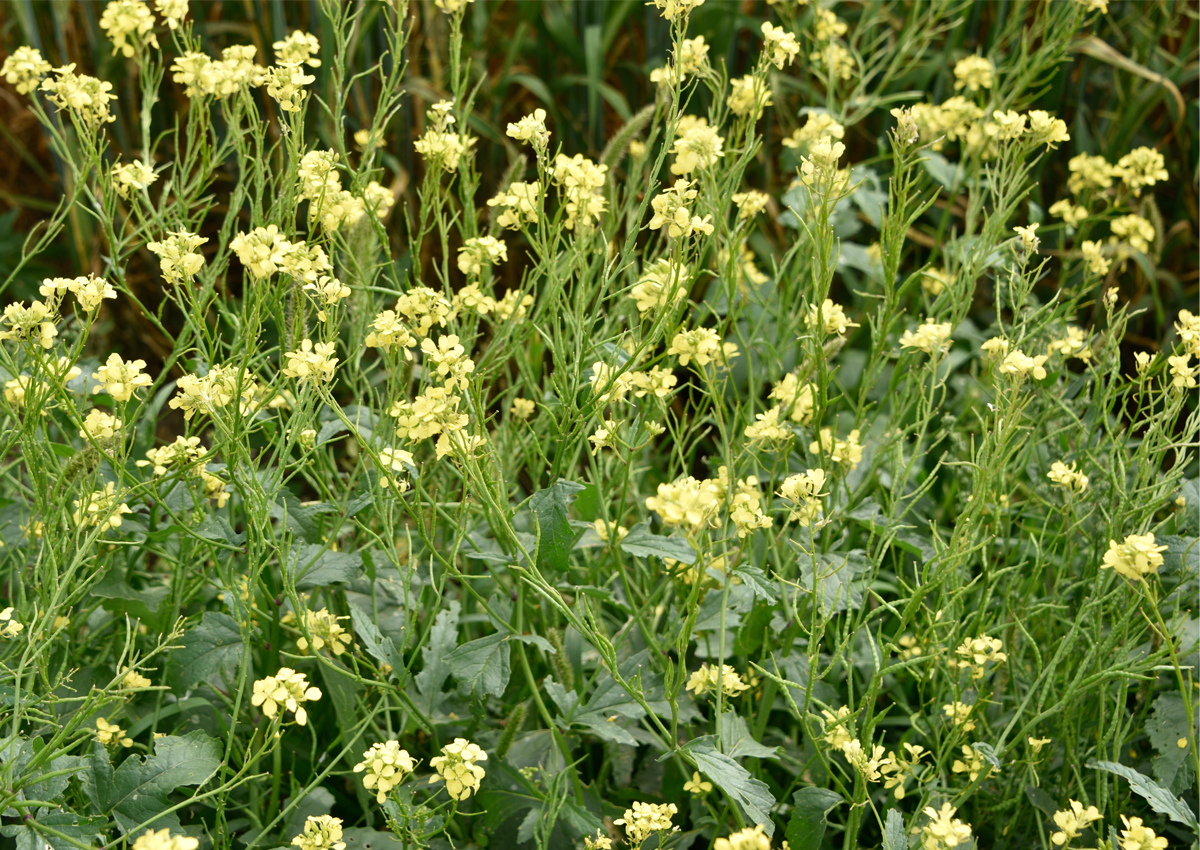
Researchers Discover Gene to Help Produce Fatter and Oilier Seeds
September 4, 2019| |
Canola, developed in Canada, is a variety of the rapeseed or oilseed rape plant, which is among the most popular vegetable oil crops worldwide. Miller and colleagues grew about 100 rapeseed varieties, each of which had been previously sequenced at the transcriptome level—revealing which genes each variety expressed, and at what levels—and showing huge variation in gene activity across varieties. Miller also harvested and weighed seeds from each variety, with some seeds heavier than others, a proxy for their oil content.
Miller's team compared differences in seed weight and found that one gene, UPL3, was highly active in plants with light seeds, suggesting that UPL3's protein might be involved in seed development. The researchers then examined mutants with nonfunctional UPL3 in Arabidopsis model and found that their seeds were 10 percent heavier than wild-type seeds. To find out how UPL3 influenced seed weight, the researchers looked for genes already known to be involved in seed development. They found three genes, all regulated by the same protein, LEC2, a transcription factor that increases their expression, leading to larger and oilier seeds.
For more details, read the PNAS Blog article.
| |
You might also like:
- Researchers Find Potential Gene for Enhancing Oil Content of Canola
- Argentine Canola GM Events in ISAAA GM Approval Database
- Biotech Crop Annual Update: Canola
Biotech Updates is a weekly newsletter of ISAAA, a not-for-profit organization. It is distributed for free to over 22,000 subscribers worldwide to inform them about the key developments in biosciences, especially in biotechnology. Your support will help us in our mission to feed the world with knowledge. You can help by donating as little as $10.
-
See more articles:
-
News from Around the World
- US, Highest Producer of Biotech Crops in 2018, Gov't Support Vital
- Declaration to Establish African Coalition on Genome Editing Communication Adopted
- NZ's Environmentally Sustainable Ryegrass for Livestock Makes Steady Progress in the Field
- Philippines Among Top Biotech Crop Adopters in Asia-Pacific, 2018 ISAAA Report Reveals
- Scientists Discover Gene for Drought Resistance in Barley
-
Research Highlights
- Researchers Discover Gene to Help Produce Fatter and Oilier Seeds
- Salk Scientists Uncover Gene for Iron Tolerance in Plants
-
Beyond Crop Biotech
- Forestry Organizations Should Lift Ban on GM Trees, Scientists
-
Plant
- Bidirectional Promoter Based CRISPR-Cas9 System Developed for Genome Editing in Plants
- New Cloning System Allows Development of Transgene-free Edited Crops
-
Read the latest: - Biotech Updates (February 18, 2026)
- Gene Editing Supplement (January 28, 2026)
- Gene Drive Supplement (February 22, 2023)
-
Subscribe to BU: - Share
- Tweet

